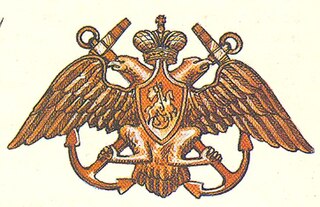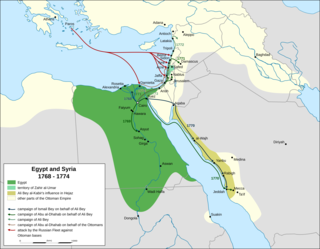
The Battle of Athos took place on 1–2 July 1807New Style as a part of the Napoleonic Wars during the Russo-Turkish War of 1806–1812.

The Third Battle of the Dardanelles in the Fifth Ottoman-Venetian War took place on 26 and 27 June 1656 inside the Dardanelles Strait. The battle was a clear victory for Venice and the Knights Hospitaller over the Ottoman Empire, although their commander, Lorenzo Marcello, was killed on the first day.

The naval Battle of Cheshme took place on 5–7 July 1770 during the Russo-Turkish War (1768–1774) near and in Çeşme Bay, in the area between the western tip of Anatolia and the island of Chios, which was the site of a number of past naval battles between the Ottoman Empire and the Republic of Venice. It was a part of the Orlov Revolt of 1770, a precursor to the later Greek War of Independence (1821–1829), and the first of a number of disastrous fleet battles for the Ottomans against Russia. Today it is commemorated as a Day of Military Honour in Russia.

The Battle of Tendra was a naval action fought on 8 and 9 September 1790 in the Black Sea as part of the Russo-Turkish War (1787–1792). It ended in a decisive victory for Ushakov's Russians over the Ottomans.

The naval Battle of Fidonisi took place on 14 July 1788 (NS) between the fleets of the Russian Empire under Marko Voinovich's lead and the Ottoman Empire under Cezayirli Hasan Pasha during the Russo-Turkish War (1787–1792) in the area of Snake Island, which in Greek was called Fidonisi (Φιδονήσι). It was a Russian victory.

The naval Battle of (the) Kerch Strait took place on 19 July 1790 near Kerch, Crimea, was a victory for Imperial Russia over the Ottoman Empire during the Russo-Turkish War, 1787-1792.

During the Napoleonic Wars, the Anglo-Russian War was the phase of hostilities between Great Britain and Russia after the latter signed the Treaty of Tilsit that ended its war with France. Anglo-Russian hostilities were limited primarily to minor naval actions in the Baltic Sea and Barents Sea.
This minor battle took place on 3 September 1773 between Russia and the Ottoman Empire during the Russo-Turkish War (1768–1774). Alternative source (Chernyshev): Cruising as part of a squadron under Kinsbergen, on August 23 and September 5 twice spotted an Ottoman force, but apparently the Ottoman force did not engage.

The Dardanelles operation was a failed assault by the British Royal Navy against the coastal fortifications of Constantinople. The operation was part of the Anglo-Turkish War.

This was a series of mainly small-ship actions which occurred along the coast of what is now Ukraine during the Russo-Turkish War (1787–1792) as Russian and Turkish ships and boats supported their land armies in the struggle for control of Ochakov, a strategic position. The main actions at sea happened on 17, 18, 28 and 29 June and 9 July 1788. On 9 July also, the larger Turkish ships left and on 14 July they fought the Russian Sevastopol Squadron about 100 miles to the south.
Fought during the Russo-Turkish War, 1768-1774, this indecisive battle took place on 27 and 28 May 1770 at the entrance to the Argolic Gulf, Greece, when a Russian fleet under John Elphinstone engaged a larger Ottoman fleet. No ships were lost on either side, and casualties were small.

This battle took place on 6, 7, and 8 November 1772, during the Russo-Turkish War (1768–74) in the Gulf of Patras, Greece, when a Russian fleet under Mikhail Konyaev defeated an Ottoman force of frigates and xebecs, destroying all 9 frigates and 10 out of 16 xebecs while losing no ships.

The Imperial Russian Navy operated as the navy of the Russian Tsardom and later the Russian Empire from 1696 to 1917. Formally established in 1696, it lasted until dissolved in the wake of the February Revolution of 1917. It developed from a smaller force that had existed prior to Tsar Peter the Great's founding of the modern Russian navy during the Second Azov campaign in 1696. It expanded in the second half of the 18th century and reached its peak strength by the early part of the 19th century, behind only the British and French fleets in terms of size.

The naval Battle of the Dardanelles took place on 22 May 1807 as a part of the Napoleonic Wars during the Russo-Turkish War of 1806–1812. It was fought between the Russian and Ottoman navies near the Dardanelles Strait.

The Battle of Grengam, Finnish: Flisön taistelu of 1720 was the last major naval battle in the Great Northern War that took place in Åland, in the Ledsund strait between the island communities of Föglö and Lemland. The battle marked the end of Russian and Swedish offensive naval operations in Baltic waters. The Russian fleet conducted one more raid on the Swedish coast in spring 1721, whereupon the Treaty of Nystad was signed, ending the war.

Alexei Naumovich Senyavin was an admiral of the Imperial Russian Navy, son of Naum Senyavin.

The Azov Flotilla or Azov Naval Flotilla was the name given to several Russian naval forces operated on the Sea of Azov as part of the Imperial Russian Navy, by both the Soviets and the White Russians during the Russian Civil War, and as part of the Soviet Navy during World War II.

Beirut was twice occupied during the Russo-Turkish War of 1768–1774 by squadrons of the Imperial Russian Navy's Mediterranean Fleet, first in June 1772 and second from October 1773 to early 1774, as part of its Levant campaign. Russia's main objective in this campaign was to assist local forces led by Egypt's autonomous ruler, Ali Bey al-Kabir, who was in open rebellion against the Ottoman Empire.

The Spanish–Algerian War was a conflict between the Spanish Empire and the Deylik of Algiers.
The Mediterranean Fleet was a short-lived fleet of the Imperial Russian Navy in the Mediterranean Sea, active during the Russo-Turkish War of 1768–1774.
















